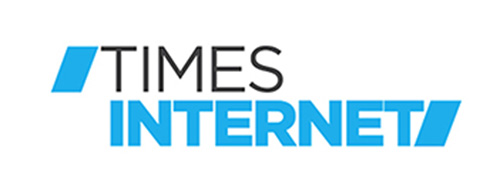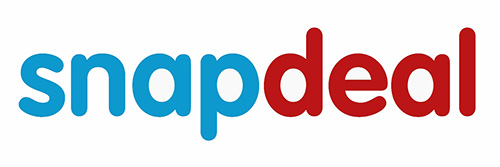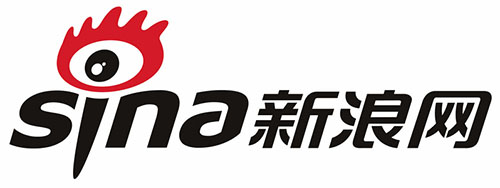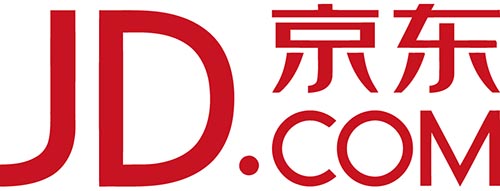The 10 Most Influential Internet Companies in China and India

TENCENT
Time of establishment: November 11, 1998
Headquarters: Shenzhen, China
Market value: US$ 195.5 billion
 Tencent is one of China’s largest and most used internet service providers. It has built the country’s largest online community to meet the various needs of internet users including communication, information, entertainment, e-commerce and others. Tencent is committed to enhancing its development and innovation capabilities, with more than half of its employees being R&D staff. Currently, it is the Chinese internet firm obtaining the largest number of invention patents. The development of Tencent has profoundly influenced the ways hundreds of millions of internet users communicate with each other as well as their lifestyles. It also brings possibilities of a wider range of applications to China’s internet industry.
Tencent is one of China’s largest and most used internet service providers. It has built the country’s largest online community to meet the various needs of internet users including communication, information, entertainment, e-commerce and others. Tencent is committed to enhancing its development and innovation capabilities, with more than half of its employees being R&D staff. Currently, it is the Chinese internet firm obtaining the largest number of invention patents. The development of Tencent has profoundly influenced the ways hundreds of millions of internet users communicate with each other as well as their lifestyles. It also brings possibilities of a wider range of applications to China’s internet industry.
ALIBABA
Time of establishment: September 9, 1999
Headquarters: Hangzhou, China
Market value: US$ 205.1 billion
 Alibaba is one of the world’s largest online marketplaces and commercial communication platforms. Currently, Alibaba Group and its affiliated companies operate the global leading online and mobile marketplaces in retail and wholesale trade and provide a plethora of internet-based services including online advertising and marketing, e-payment, cloud computing and networking, and mobile solutions. It launched the first website that enables Chinese small exporters, manufacturers and businesses to connect to buyers worldwide. It has become a global e-commerce leader across web and mobile. On September 19, 2014, Alibaba was listed on the New York Stock Exchange.
Alibaba is one of the world’s largest online marketplaces and commercial communication platforms. Currently, Alibaba Group and its affiliated companies operate the global leading online and mobile marketplaces in retail and wholesale trade and provide a plethora of internet-based services including online advertising and marketing, e-payment, cloud computing and networking, and mobile solutions. It launched the first website that enables Chinese small exporters, manufacturers and businesses to connect to buyers worldwide. It has become a global e-commerce leader across web and mobile. On September 19, 2014, Alibaba was listed on the New York Stock Exchange.
FLIPKART
Time of establishment: 2007
Headquarters: Bangalore, India
Market value: US$15 billion
 Flipkart is one of the leading e-commerce companies in India. Founded by two Indian software engineers, Sachin Bansal and Binny Bansal, Flipkart started off as an online bookstore. Later, it launched its own product range under the name “DigiFlip” with products including tablets, USBs, and laptop bags. Flipkart allows payment methods such as cash on delivery, credit or debit card transactions, net banking, e-gift voucher and card swipe on delivery. With over 30 million products, Flipkart is the first billion-dollar company in the Indian e-commerce sector.
Flipkart is one of the leading e-commerce companies in India. Founded by two Indian software engineers, Sachin Bansal and Binny Bansal, Flipkart started off as an online bookstore. Later, it launched its own product range under the name “DigiFlip” with products including tablets, USBs, and laptop bags. Flipkart allows payment methods such as cash on delivery, credit or debit card transactions, net banking, e-gift voucher and card swipe on delivery. With over 30 million products, Flipkart is the first billion-dollar company in the Indian e-commerce sector.
TIMES INTERNET
Time of establishment: 1999
Headquarters: Gurgaon, India
 Times Internet is associated with the Times of India Group, yet stands independent as a collective of start-ups offering dynamic digital products. Since its inception, Times Internet has led the internet revolution in India and has emerged as India’s foremost web entity, running diverse portals and niche websites. Times Internet reaches over 150 million visitors and serves 2 billion page views every month across web and mobile. It has a diversified set of over 22 digital consumer-facing businesses. Its service line includes online news, televisions, magazines, music, education, digital businesses, e-commerce, and advertising network.
Times Internet is associated with the Times of India Group, yet stands independent as a collective of start-ups offering dynamic digital products. Since its inception, Times Internet has led the internet revolution in India and has emerged as India’s foremost web entity, running diverse portals and niche websites. Times Internet reaches over 150 million visitors and serves 2 billion page views every month across web and mobile. It has a diversified set of over 22 digital consumer-facing businesses. Its service line includes online news, televisions, magazines, music, education, digital businesses, e-commerce, and advertising network.
SNAPDEAL
Time of establishment: 2010
Headquarters: New Delhi, India
Market value: US$5 billion
 Snapdeal started off as a daily deals platform, but expanded in 2011 to become an online marketplace. Snapdeal offers an assortment of 12 million products across diverse categories from over 150,000 sellers, shipping to 5,000 towns and cities in India. In 2015, with its acquisition of Freecharge, a leading mobile transactions platform, Snapdeal became the largest mobile commerce company in India. Snapdeal has partnered with several global marquee investors and individuals such as SoftBank, BlackRock, Temasek, eBay Inc., etc. Its vision is to create India’s most impactful digital commerce ecosystem that creates life-changing experiences for buyers and sellers.
Snapdeal started off as a daily deals platform, but expanded in 2011 to become an online marketplace. Snapdeal offers an assortment of 12 million products across diverse categories from over 150,000 sellers, shipping to 5,000 towns and cities in India. In 2015, with its acquisition of Freecharge, a leading mobile transactions platform, Snapdeal became the largest mobile commerce company in India. Snapdeal has partnered with several global marquee investors and individuals such as SoftBank, BlackRock, Temasek, eBay Inc., etc. Its vision is to create India’s most impactful digital commerce ecosystem that creates life-changing experiences for buyers and sellers.
QUIKR
Time of establishment: 2008
Headquarters: Bangalore, India
Market value: US$5 billion
 Quikr is an online classifieds platform where people can connect with each other to buy or sell goods and services. Launched with the vision for buyers and sellers to “meet online, transact offline”, today Quikr has over 4.2 million listings and has generated over 150 million responses. Quikr operates from 940 cities across India and is accessed by more than 30 million unique users and 26 million new customers per month. The commodities it sells have over 13 categories and 170 sub-categories, with the most popular being mobile phones and electronics, real estate, cars and bikes. In 2013, Quikr was featured in the list of the 10 “Best E-commerce Brands in India amongst Youth”.
Quikr is an online classifieds platform where people can connect with each other to buy or sell goods and services. Launched with the vision for buyers and sellers to “meet online, transact offline”, today Quikr has over 4.2 million listings and has generated over 150 million responses. Quikr operates from 940 cities across India and is accessed by more than 30 million unique users and 26 million new customers per month. The commodities it sells have over 13 categories and 170 sub-categories, with the most popular being mobile phones and electronics, real estate, cars and bikes. In 2013, Quikr was featured in the list of the 10 “Best E-commerce Brands in India amongst Youth”.
JABONG
Time of establishment: 2012
Headquarters: Gurgaon, India
Market value: US$1 billion
 Jabong is a new online e-commerce portal, selling apparel, footwear, fashion accessories, beauty products, fragrances, home accessories and other fashion and lifestyle products. Jabong follows both an inventory model and a managed marketplace model. In the inventory model, products are sourced from brands and stored in the Jabong warehouse. In the managed marketplace model, Jabong provides marketing, logistics and delivery. The company has been active in exploring the digital media market, giving competition to established competitors in a short span of time. This includes the launch of its first TV campaign, digital fitness campaign and a monthly fashion magazine The Juice.
Jabong is a new online e-commerce portal, selling apparel, footwear, fashion accessories, beauty products, fragrances, home accessories and other fashion and lifestyle products. Jabong follows both an inventory model and a managed marketplace model. In the inventory model, products are sourced from brands and stored in the Jabong warehouse. In the managed marketplace model, Jabong provides marketing, logistics and delivery. The company has been active in exploring the digital media market, giving competition to established competitors in a short span of time. This includes the launch of its first TV campaign, digital fitness campaign and a monthly fashion magazine The Juice.
SINA
Time of establishment: December 1998
Headquarters: Beijing, China
Market value: US$ 3.391 billion
 Sina is an online media company serving China and global Chinese communities. Its digital media network, comprised of Sina.com (portal), Sina.cn (mobile portal) and Weibo.com (social media), enables internet users to access professional media and user generated content (UGC) in multi-media formats from the web and mobile devices and share their interests with friends and acquaintances. Sina is the most acclaimed internet brand in the Chinese mainland and amongst global Chinese communities. Relying on its technological advantage and quality services, Sina enjoys a great reputation among netizens.
Sina is an online media company serving China and global Chinese communities. Its digital media network, comprised of Sina.com (portal), Sina.cn (mobile portal) and Weibo.com (social media), enables internet users to access professional media and user generated content (UGC) in multi-media formats from the web and mobile devices and share their interests with friends and acquaintances. Sina is the most acclaimed internet brand in the Chinese mainland and amongst global Chinese communities. Relying on its technological advantage and quality services, Sina enjoys a great reputation among netizens.
JD
Time of establishment: June 18, 1998
Headquarters: Beijing, China
Market value: US$ 44.43 billion
 JD is the largest B2C e-commerce company in China. In the first quarter of 2015, it had a share of 56.3 percent of the country’s B2C e-commerce market. In addition, JD has a large e-commerce warehousing network. In May 2014, JD became the first comprehensive e-commerce platform from China to be listed on NASDAQ. It is among the world’s top 10 internet companies.
JD is the largest B2C e-commerce company in China. In the first quarter of 2015, it had a share of 56.3 percent of the country’s B2C e-commerce market. In addition, JD has a large e-commerce warehousing network. In May 2014, JD became the first comprehensive e-commerce platform from China to be listed on NASDAQ. It is among the world’s top 10 internet companies.
BAIDU
Time of establishment: January 2000
Headquarters: Beijing, China
Annual turnover: US$ 76 billion
 Baidu is the world’s largest Chinese-language search engine and website, with more than 17,000 employees worldwide. The inception of Baidu made China the fourth country owning core search engine technologies after the United States, Russia and South Korea. In 2005, Baidu went public on NASDAQ and became the first Chinese company to be included in the NASDAQ-100 index. Moreover, it broke several NASDAQ records including the highest capitalization rise on the first-day of trading. The Financial Times listed Baidu as one of the Top 10 Chinese Global Brands, which was the youngest and only internet company on the list.
Baidu is the world’s largest Chinese-language search engine and website, with more than 17,000 employees worldwide. The inception of Baidu made China the fourth country owning core search engine technologies after the United States, Russia and South Korea. In 2005, Baidu went public on NASDAQ and became the first Chinese company to be included in the NASDAQ-100 index. Moreover, it broke several NASDAQ records including the highest capitalization rise on the first-day of trading. The Financial Times listed Baidu as one of the Top 10 Chinese Global Brands, which was the youngest and only internet company on the list.
Published in the INAUGURAL ISSUE of CHINA-INDIA DIALOGUE
